A Good Samaritan Found Heart The dog stumbles around a Philadelphia street alone with his tongue cut out; now the canine is fully recovered with help from ACCT Philly and is ready for the next chapter.
Heart is a dog that brings people together. His foster mom Sarah Barnett, the director of development and communications at ACCT Philly, has seen it firsthand.
In April, a Good Samaritan found the young disoriented dog stumbling around a Philadelphia street alone, covered in puncture wounds and with a small amount of blood dripping from his mouth. Concerned about the canine’s health, the animal lover brought the pooch, later named Heart, to ACCT Philly — Philadelphia’s only open-admissions shelter.
After arriving at ACCT Philly, Heart received a veterinary exam, where doctors made a gruesome discovery. Someone had deliberately cut out Heart’s tongue, leaving the dog unable to eat properly, Barnett tells PEOPLE.
“We got a second opinion to make sure Heart’s missing tongue wasn’t connected to cancer or an accident,” she added. Unfortunately, the second vet confirmed that Heart’s tongue was removed “traumatically.”
“I’ve seen a lot of cruelty. I hadn’t seen this. I don’t understand this,” Barnett, who has worked with animal welfare organizations for over ten years, says. Her time in the animal rescue world has also taught her that focusing on “why someone is the way they are” is not helpful to the pets she is trying to save, “focusing on the future” is what matters.
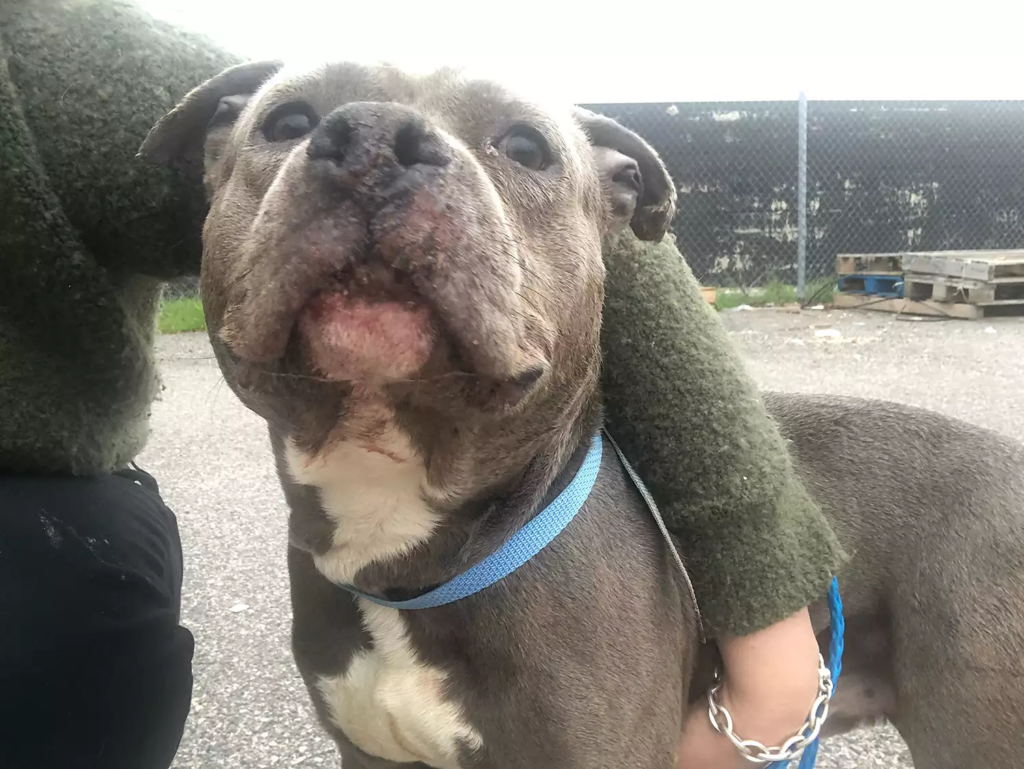
While Barnett is frustrated that the person who cut out Heart’s tongue will likely never be caught since the dog was found as a stray, she knows that dedicating herself to finding Heart a happy ending is what is going to make his life better.
For the past three months, Barnett and many others have been working to help Heart reach the next, brighter chapter of his life. After Heart entered ACCT Philly, the shelter searched for a nearby rescue with available fosters where they could place the pooch — pets with medical issues often recover best in a foster setting.
“There were no fosters available anywhere. Every rescue is struggling to find fosters right now since many of the people who fostered in 2020 now want to be out taking vacations,” Barnett explains.
Other rescues didn’t have the space to house Heart, but they still tried to help.
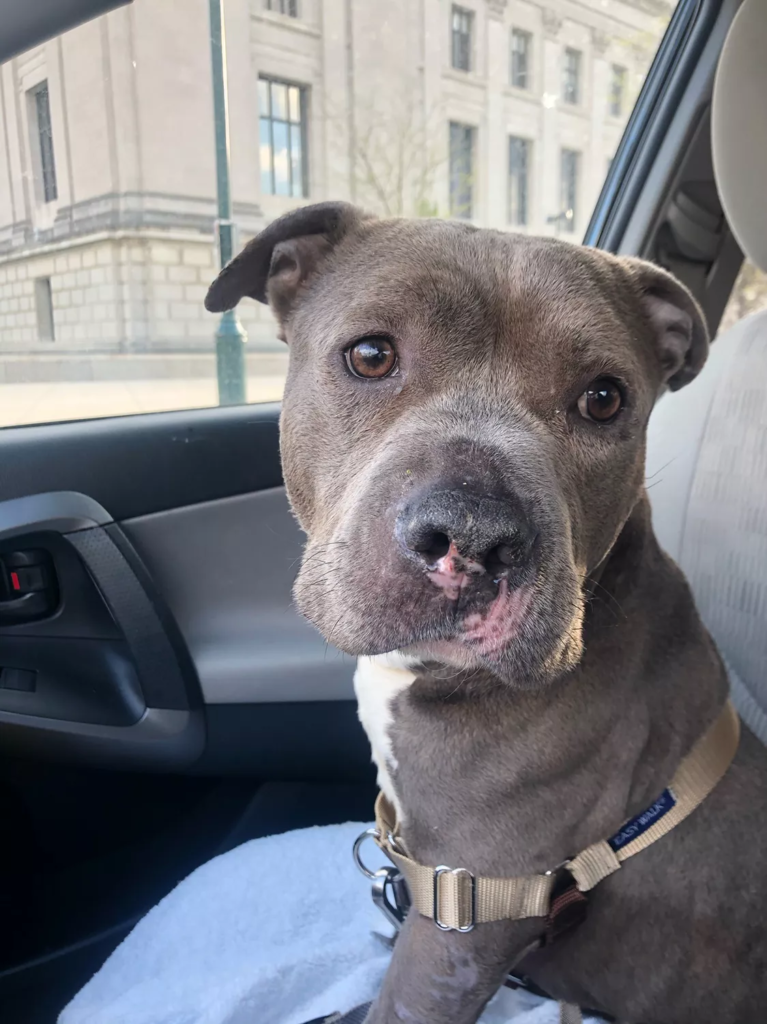
“All of the rescue groups I called really tried to help. Lots of groups posted on social media asking for fosters for Heart,” Barnett says. “PAWS offered to provide assistance to whatever foster came forward.”
“This dog brought everyone together,” she adds.
After a foster couldn’t be found, Barnett, with assistance from PAWS – Philadelphia’s largest animal rescue partner, whose executive director offered to co-foster Heart as well — decided to take Heart in and help the dog learn to eat again before finding him a forever home.
Barnett has a history of helping special needs pets. Her late dog Dimitri the Sharpei, a puppy mill rescue, had his eyes removed before coming into Barnett’s life.
“He taught me about being a mom to a special needs dog and how easily they can adapt,” she says of Dimitri.
Heart has only emphasized the lessons that Dimitri first taught Barnett.
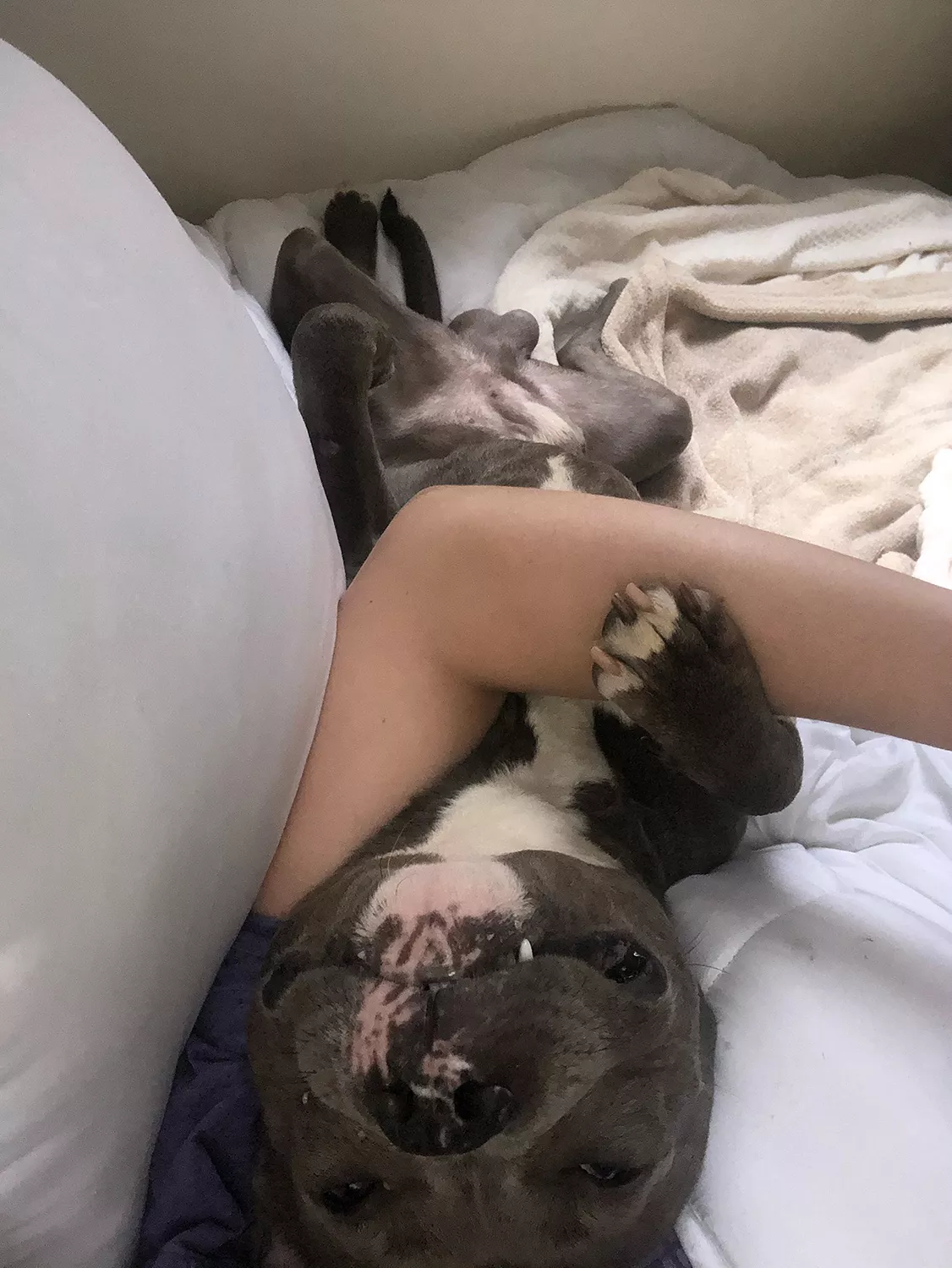
“I wouldn’t blame him if he hated people, but he has loved people from the beginning,” she says of Heart’s “loving,” “goofy,” and “cuddly” personality.
Barnett also learned that Heart is a dog eager to please and learn new things, a valuable trait when relearning how to eat.
At first, Barnett tried making Heart meatballs out of wet food and placing them in the dog’s mouth, but that only led to a big mess and little food consumed. After a bit of trial and error and some suggestions from a veterinarian, Barnett found an eating style that works for Heart. The dog consumes dry kibble out of an elevated feeder, which allows him to through the food back into his mouth with ease. After each meal, Barnett cleans up any excess found in Heart’s mouth and on the floor.
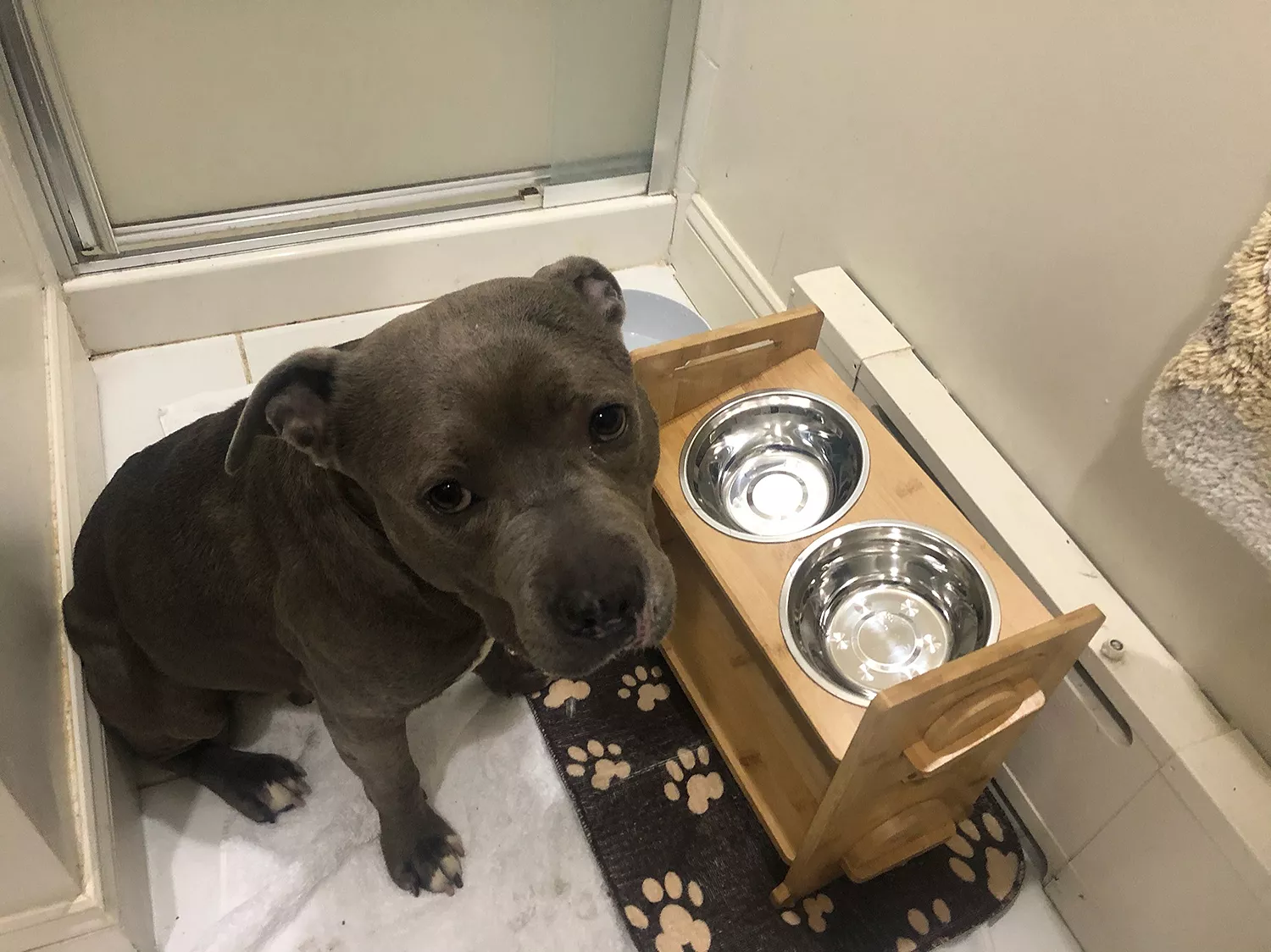
Learning to eat wasn’t the only hurdle Heart has had to overcome since his rescue. The dog recently stepped on a bee, causing a severe allergic reaction. Luckily, ACCT Philly’s Yoda Fund — an effort set up to help ACCT Philly pets in need of urgent medical care — helps cover the expenses connected to this emergency, saving Heart’s life yet again.
Now, heart is fully healed, eating independently, and ready to find a forever home. The perfect pet parent for Heart would live outside a city in a home with substantial outdoor space. Before arriving at ACCT Philly, Heart developed a fear of other dogs, making walking busy city streets stressful.
“He needs a place where he can relax,” Barnett says.
This ideal home for Heart would have no cats or other small pets, but a calm dog is okay. ACCT Philly is hopeful that the presence of another loving canine can help Heart learn that he doesn’t need to be fearful of all dogs. The heart loves all humans, including kids.
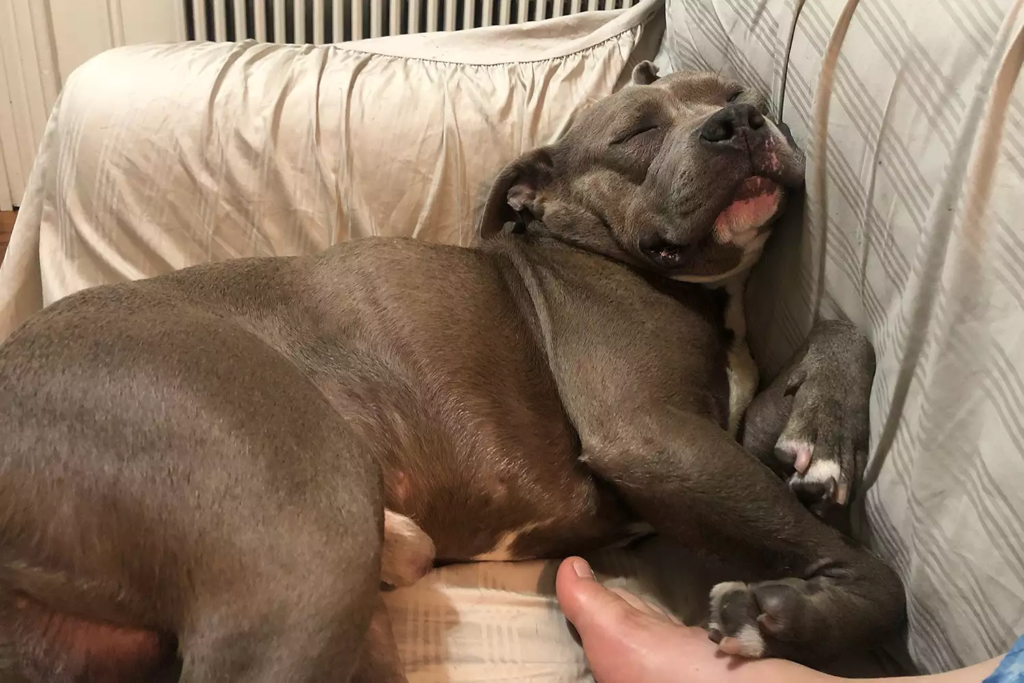
“He’s beautiful, fun, goofy, and has one of the best personalities. He is the perfect mix of puppy-ness and relaxed dog,” Barnett says of Heart. “You need to clean out his mouth after he eats, and you can’t give him treats. Someone who understands that and is willing to work with that would make a great parent for him”
“His adopter should also understand that Heart might need more dental care in the future and that he can overheat easily since he can’t fully pant,” she adds.
Barnett and her colleagues are going through the numerous adoption applications coming in for Heart in search of his perfect match.
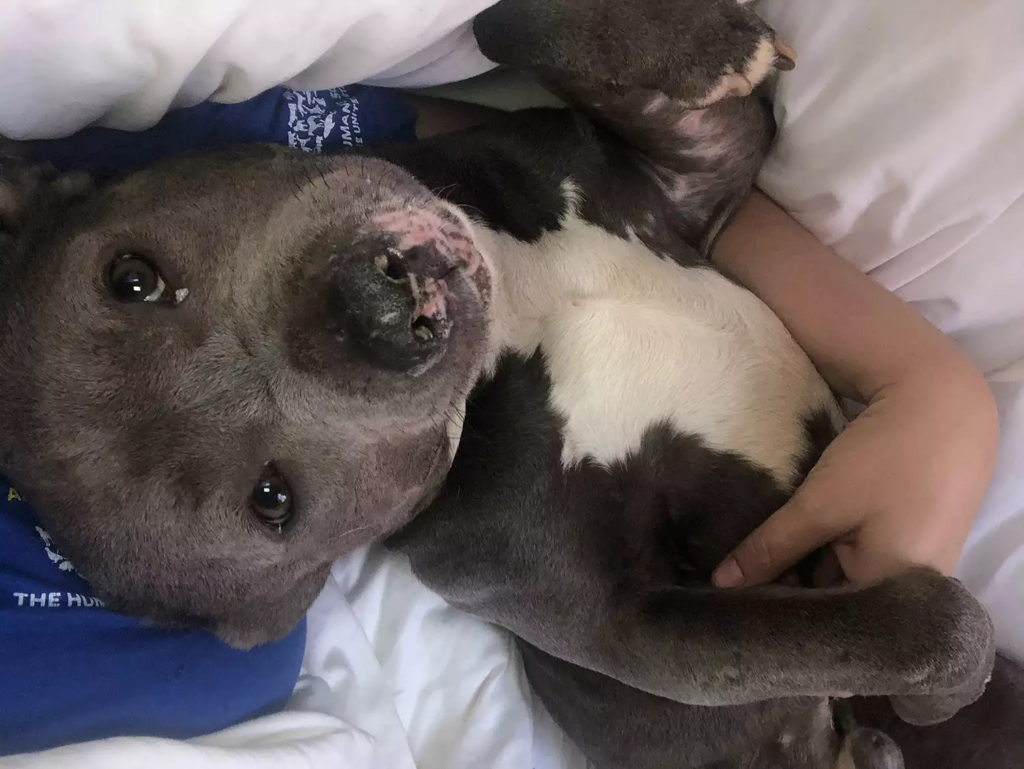
Barnett hopes that Heart’s story reminds others that shelters are full of pets with stories, who have overcome their own struggles and are now looking for a home and/or a foster family.
“It’s something everyone could do,” Barnett says of fostering. “If 2% of the population became fosters, we wouldn’t have any animals in shelters.”
For those who can’t welcome a new pet into their lives right now but want to help dogs like Heart, donations to ACCT Philly’s Yoda Fund go directly to rescue pets in need of urgent medical care.
